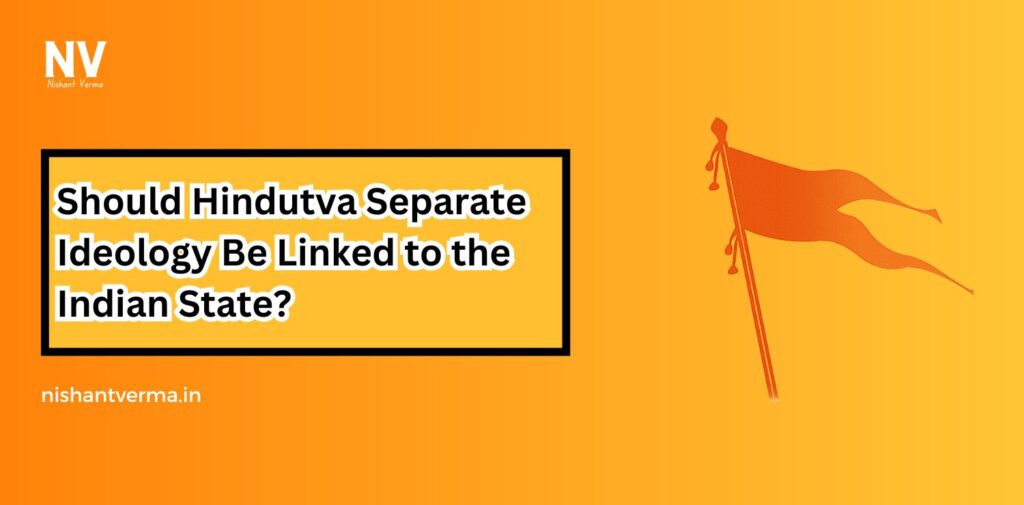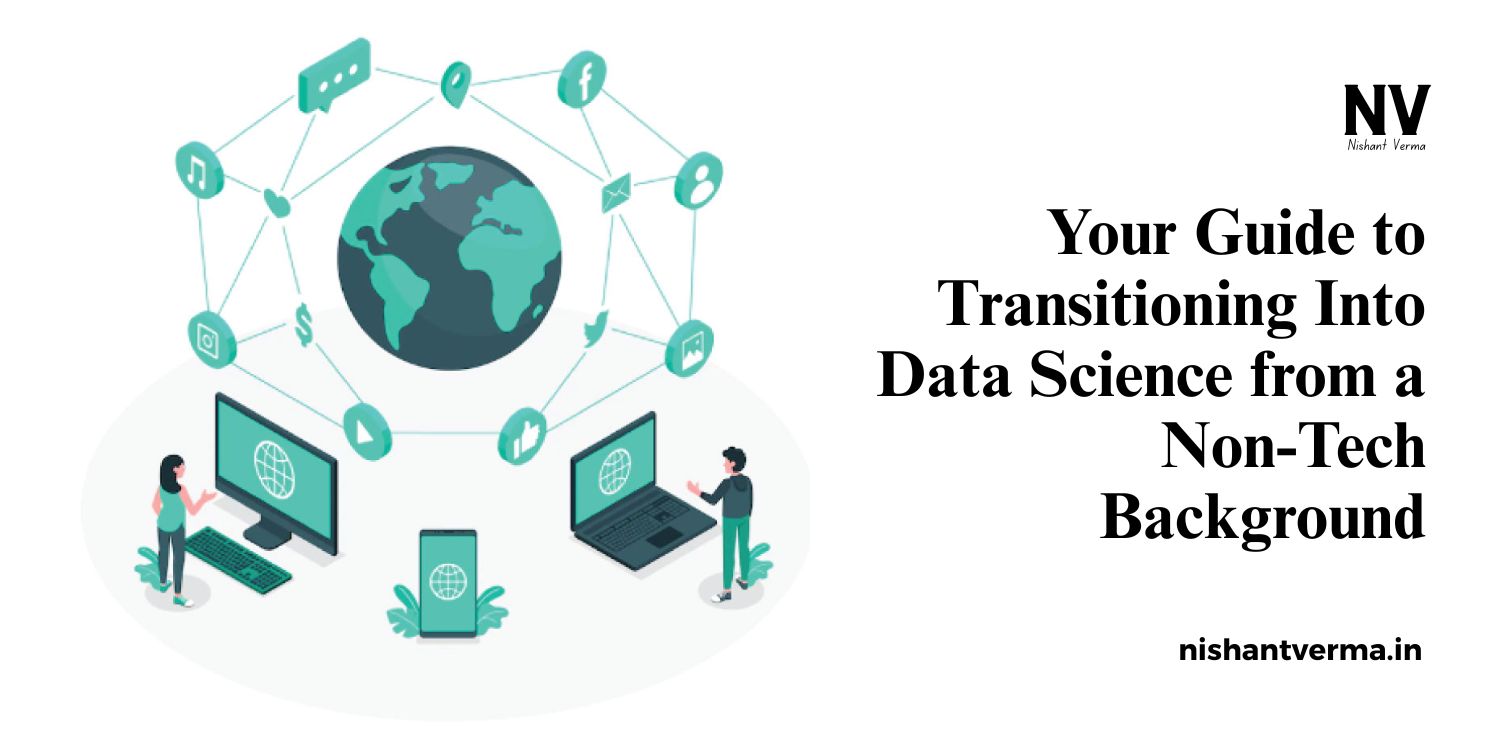India, the world’s largest democracy, is known for its diversity—culturally, linguistically, and religiously. Within this mosaic of identities, one concept that has sparked intense debate in recent decades is “Hindutva.” Hindutva, which roughly translates to the “ideology of Hinduness,” has become a central political idea for many in India, particularly those who follow the Bharatiya Janata Party (BJP) and its affiliates. However, the question remains: Should Hindutva Separate Ideology be linked to the Indian state?
In order to understand this complex issue, it’s important to first explore the key ideas behind Hindutva and its connection to Indian politics. Then, we can examine arguments both in favour of and against linking Hindutva to the Indian state.
What is Hindutva?
Hindutva, as an ideology, was first articulated by Vinayak Damodar Savarkar in the 1920s. Savarkar described it as the political and cultural expression of what it means to be “Indian,” which, in his view, was synonymous with being Hindu. For Savarkar, the essence of India was deeply rooted in Hinduism, and the Hindu identity, culture, and way of life should form the backbone of the Indian state.
Over time, Hindutva has evolved and become a central political ideology, particularly with the rise of organizations like the Rashtriya Swayamsevak Sangh (RSS) and its affiliates, which advocate for the idea of India as a Hindu nation. The ideology does not necessarily require everyone in India to be a Hindu, but it emphasizes that the majority Hindu culture should guide the nation’s values and policies.
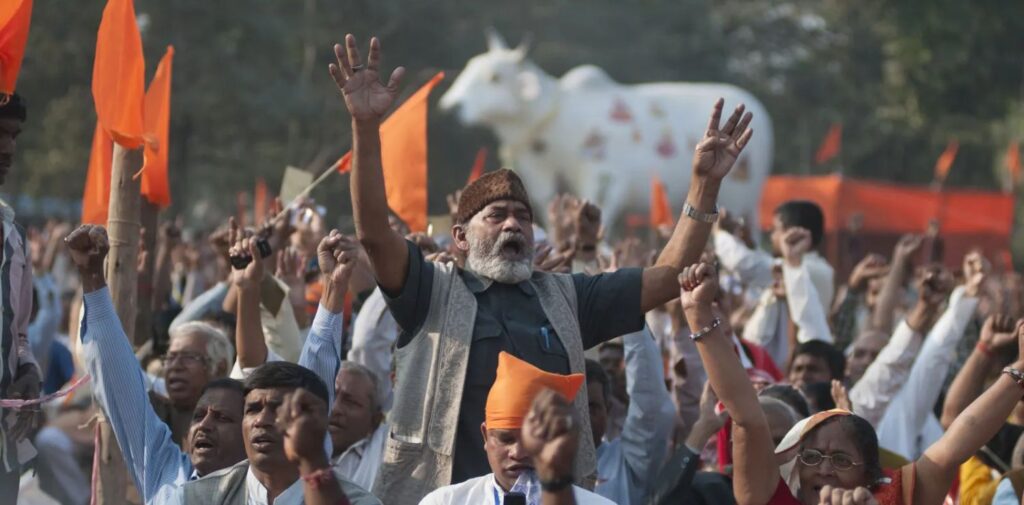
Arguments for Hindutva Being Linked to the Indian State
Cultural Identity and National Unity
One of the key arguments for linking Hindutva with the Indian state is that India, in its essence, is a land deeply intertwined with Hindu culture. From ancient times, the majority of Indians have practised Hinduism, and Hindu symbols, traditions, and festivals are woven into the fabric of Indian society. By recognizing Hindutva as a guiding principle of the state, some argue that the country would reaffirm its cultural identity and strengthen national unity.
India’s diversity can sometimes lead to division, especially with religious and cultural tensions between different groups. Some believe that Hindutva, in linking the state to Hindu culture, could act as a unifying force, creating a sense of belonging among citizens who identify with Hindu values. The idea is that a state that embraces its roots—those of Hinduism and its associated traditions—could create a sense of pride and solidarity among its people.
Hindutva as a Response to Historical Injustices
Another reason why some support the link between Hindutva and the Indian state is as a response to the perceived marginalization of Hindus in post-independence India. Some proponents argue that during the British colonial period, and even in the years after independence, Hindu culture was overlooked or downplayed in favour of secularism or the recognition of other religions. They believe that the state should correct this historical injustice and promote Hindu values more prominently, thus linking Hindutva to the nation’s identity.
Additionally, Hindutva advocates argue that the Hindu community has faced cultural and religious suppression in the form of colonial rule and even during the partition of India. By promoting Hindutva, the state would give the Hindu population a sense of recognition, respect, and empowerment, allowing them to reclaim their cultural and religious pride.
Secularism and Hindutva are Not Mutually Exclusive
Some people argue that the Indian Constitution allows for freedom of religion and secularism while still promoting a cultural identity rooted in Hindu values. They contend that being a “Hindu nation” does not necessarily mean excluding or discriminating against other religions. According to this view, the state can be inclusive, providing space for people of different faiths, while still recognizing Hinduism as the cultural and spiritual heart of the nation.
This view suggests that a balance can be struck where the state’s policies reflect Hindu culture and values, without diminishing the rights of religious minorities. For example, public holidays like Diwali and Holi, which are rooted in Hindu traditions, could be celebrated as national holidays without alienating non-Hindu citizens. In this sense, Hindutva can be seen not as a religiously exclusive concept but as a broad cultural framework that encompasses all Indians, whether they are Hindus or not.
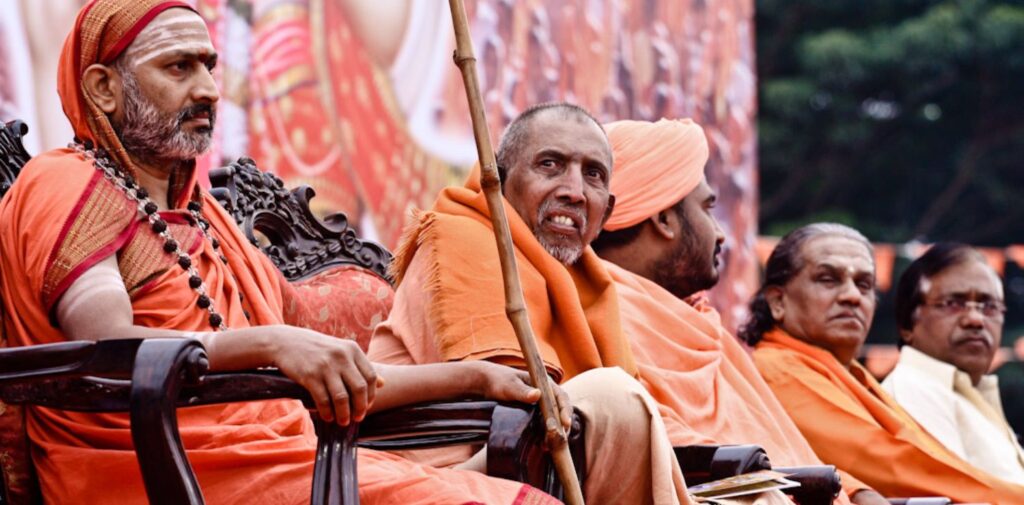
Arguments Against Hindutva Being Linked to the Indian State
- Threat to Secularism: One of the strongest arguments against linking Hindutva to the Indian state is that it undermines the foundational principle of Indian secularism. The Indian Constitution guarantees equality for all religions and ensures that the state does not favour one religion over others. Critics argue that Hindutva, by prioritizing Hinduism, directly contradicts this secular ideal. They claim that a state influenced by Hindutva could lead to the marginalization of religious minorities such as Muslims, Christians, Sikhs, and others. If the state favours one religion, it could alienate these communities, leading to social fragmentation, discrimination, and even violence. Secularism, they argue, is essential for maintaining the unity and harmony of India’s diverse society.
- Religious Pluralism and Inclusivity: India is home to a multitude of religious communities, each with its own beliefs, traditions, and practices. The country has long prided itself on its pluralistic approach to religion, where all faiths are seen as equal. Linking Hindutva to the state, critics say, would undermine this pluralism. It would send the message that Hinduism is superior to other religions, which could lead to feelings of exclusion among religious minorities. This concern has been heightened by incidents of communal violence and hate crimes against non-Hindus in recent years. Opponents of Hindutva argue that linking the ideology to the state could embolden extremist elements and promote intolerance toward religious minorities, thus eroding the country’s rich tradition of pluralism and coexistence.
- Hindutva as an Exclusive Ideology: While proponents of Hindutva claim that it is a broad cultural framework, critics argue that it is inherently exclusive and that it defines “Indianness” in a way that excludes anyone who does not identify as Hindu. Non-Hindu communities, including Muslims, Christians, and others, might feel that their culture and identity are undervalued or even rejected by the state. In this view, Hindutva risks becoming a tool for promoting religious majoritarianism rather than national unity.
- The Risk of Division: India’s history is marked by religious and cultural diversity, and it has often faced challenges in maintaining harmony among its people. Critics argue that linking Hindutva to the state could exacerbate divisions between different religious and ethnic communities. It could further polarize society, leading to a rise in religious tensions and even violence. The fear is that Hindutva could be used as a political tool to create divisions, rather than fostering the unity that India desperately needs.
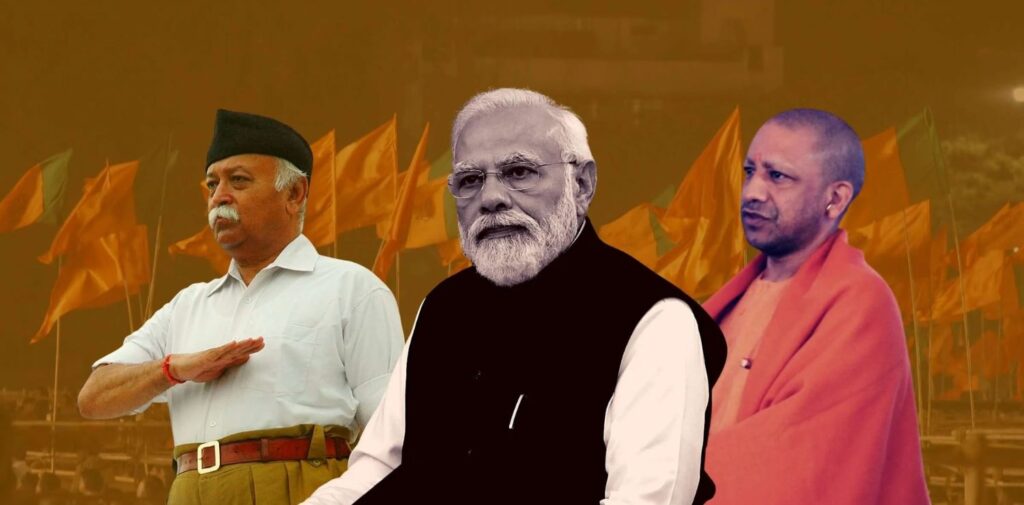
Conclusion: Hindutva Separate Ideology
The debate over whether Hindutva should be linked to the Indian state is a complex and nuanced one. On one hand, proponents argue that Hindutva could strengthen India’s cultural identity, address historical injustices, and create a sense of unity. On the other hand, critics worry that it could undermine secularism, promote religious intolerance, and lead to the marginalization of religious minorities.
Ultimately, this is a question that each of us must grapple with. What kind of nation do we want India to be? A nation that embraces its Hindu heritage while respecting the rights and cultures of all its citizens? Or a nation where secularism and pluralism take precedence over any single cultural identity?
We invite you to reflect on these perspectives and form your own opinion. Should Hindutva be linked to the Indian state, or should it remain a separate ideology? The choice is yours, and it is a question that will shape the future of our diverse and dynamic nation.

